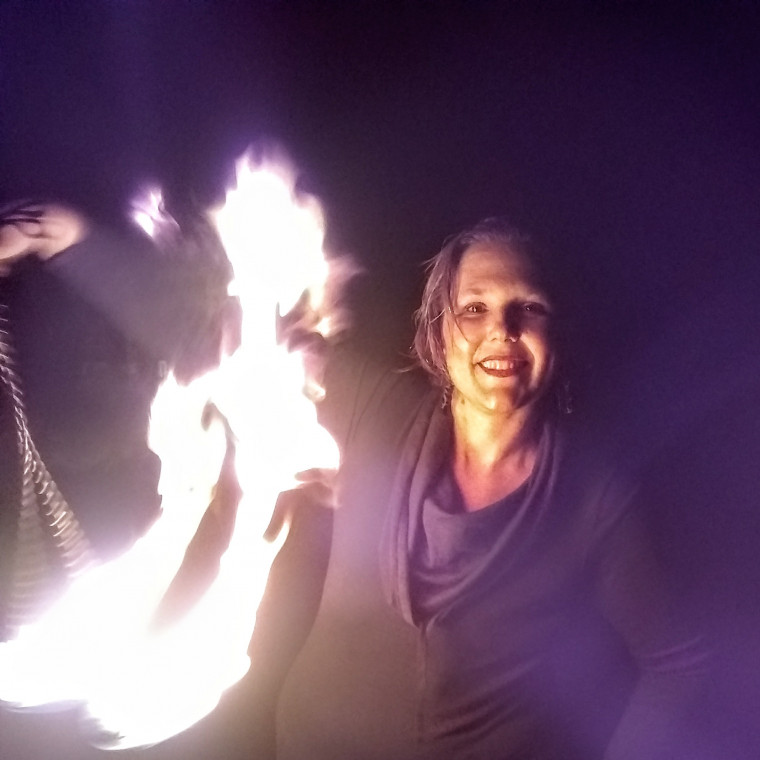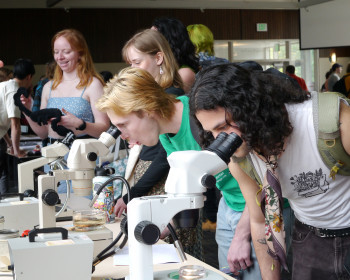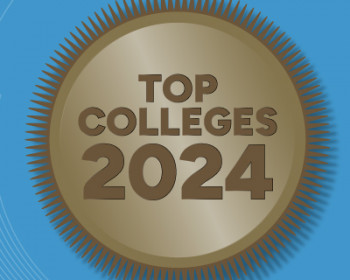Jolina Ruckert
L&C students are some of the brightest, most curious, loving, and hard-working people, and collaborating with them is the best part of my work.

Pronouns
Title
Department(s)
What three words would you use to describe Lewis & Clark?
Humanities Summer Research, July 2023
Tell us about your summer research.
This summer I am working with Cloe Moreno BA ’24 on two projects. With the first, we investigated the meaningful outdoor experiences parents share with their children and the special role animal encounters play in supporting the bonds among parents and children and their broader relationships with the natural world. We analyzed a set of stories shared by parents. The parents spoke of rich emotions they and their kids felt, impactful conversations they shared, and ways the animal encounters had inspired their love for each other and the natural world. We are presenting our findings in a paper we just submitted to a peer-reviewed journal. With the second project, we are developing a research study that will explore the ways our relationships with nature can act as a protective factor for those who are experiencing discrimination and violence. These two projects are part of a larger research question: how do our relationships with the natural world support our individual health, our relationships with each other, and our ability to create a more sustainable future?
How did you become interested in your research topic? What sort of real-world implications does your research have?
My mom took me to the forests and the ocean a lot when I was young. I grew up poor and our living conditions were difficult. The natural world was a place of reprieve and restoration for my mother, and for me it was a time of wonder, challenge, and joy. Together in nature we would explore, get uncomfortable (kayaking amongst alligators and sharks!), find respite, and connect to each other and nature. These early life experiences inspired my lifelong commitment to stand alongside those who seek to support sustainable and healthy relationships among people and the more-than-human natural world. Researchers have spent decades now exploring the value of family time in nature and have identified the important role it plays in child development. Still, little research exists on the diversity of these experiences, and what they look like and how they impact the health and well-being of underprivileged communities, marginalized communities, and communities of color.
How are students involved?
My students and I are a collaborative team—we meet daily and discuss the literature we are reading, the data we are analyzing, the connections and implications we are identifying. The students have learned challenging qualitative research analysis techniques. They are applying their critical thinking skills to understand and identify the gaps in the literature. They are coauthors working on preparing a manuscript for publication. They are assisting with future research design, including developing survey methodology.
What would prospective students find most interesting about this research?
Doing psychological research on the human relationship with nature can be one of many paths to addressing the injustice that exists in our institutions and individual lives, and it can allow us to take action towards a more sustainable future.
What do you enjoy most about collaborating with Lewis & Clark students?
L&C students are some of the brightest, most curious, loving, and hard-working people, and collaborating with them is the best part of my work. Together we get to ask questions that impact our lives and the lives of people we care about. We can learn from each other, our varied backgrounds and perspectives, and in doing so we get to expand our understanding, our curiosity, and our hope for a better world.
How does Lewis & Clark/this summer research experience prepare your students for a career and/or advanced studies after graduation?
Students in my lab have the opportunity to get hands-on experience with every step of the research process, from designing the study, to collecting and analyzing the data, to presenting the work at conferences and in publications. Along with these experiences comes opportunities for them to learn new programs and systems, communicate their work and ideas to small and large groups, learn from feedback, build their capacity to voice their perspectives, and develop collaborative relationships.
More Admissions Stories
Admissions is located in Frank Manor House on the Undergraduate Campus.
MSC: 32
email admissions@lclark.edu
voice 503-768-7040
fax 503-768-7055
Vice President of Admissions and Financial Aid
Eric Staab
Admissions
Lewis & Clark
615 S. Palatine Hill Road MSC 32
Portland OR 97219

